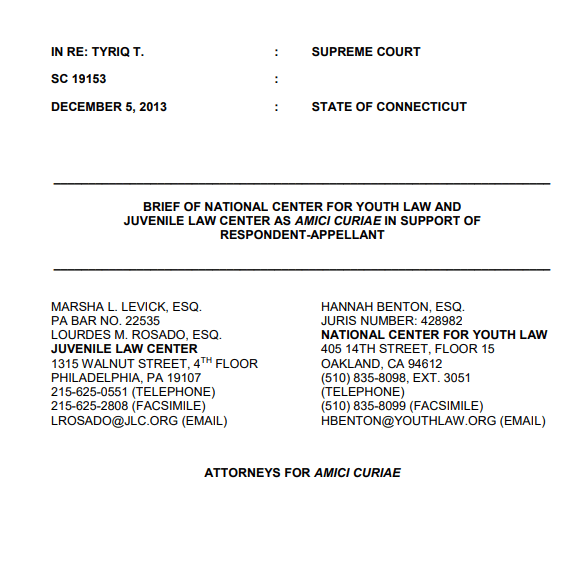
Summary of Argument
Amici write in support of Respondent-Appellant’s argument that rulings on discretionary transfers from juvenile to adult criminal court are subject to immediate appeal. Respondent-Appellant persuasively argues that, based on the legislative history and a reading of the juvenile transfer statute as a whole, the legislature intended that such decisions be susceptible to interlocutory appeal. Amici herein present further argument in support of Respondent-Appellant’s additional position that recent United States Supreme Court holdings adopting current knowledge of adolescent development -- and its applicability to youth involved with the courts -- warrants a revisiting of this court’s earlier, now discredited holding that youth do not suffer great and irreparable harm when they are forced to await a final judgment in adult court before they can challenge the transfer ruling. In re Juvenile Appeal, 195 Conn. 303, 312-13 (1985).